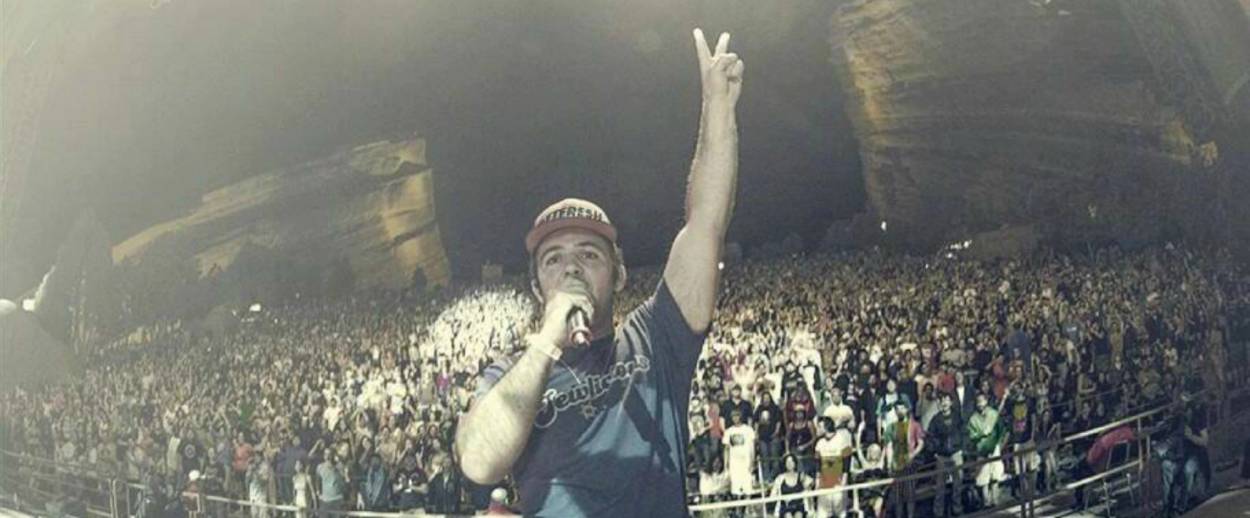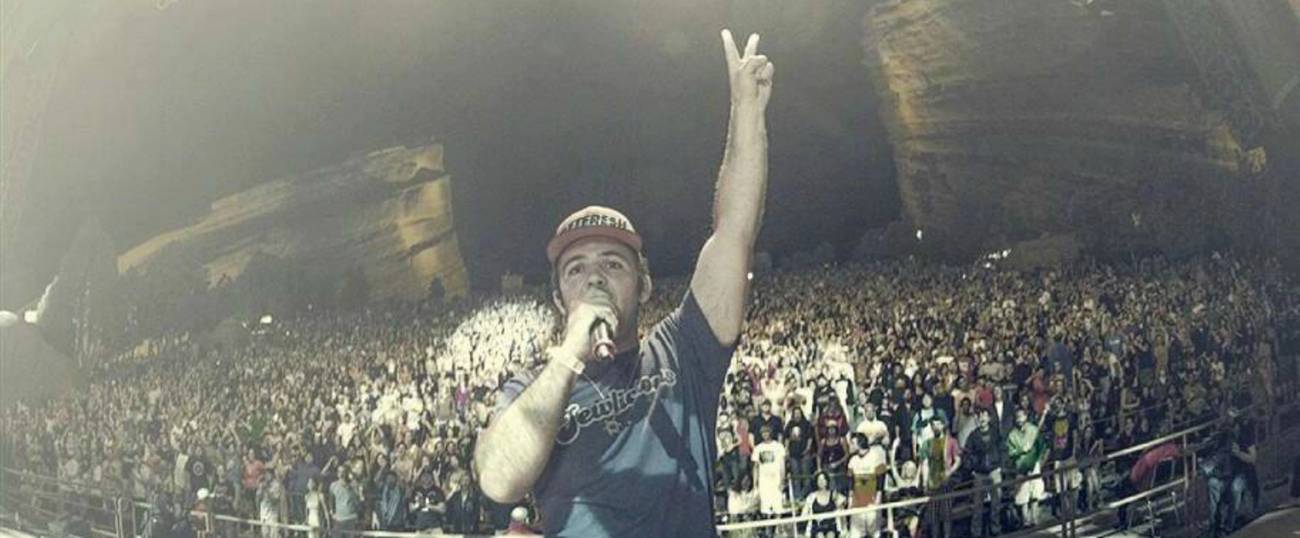Rapper Kosha Dillz’s Judaism Remains an Inspiration on Third Album
The music video for the anti-BDS track ‘Dodging Bullets’ features Matisyahu




“I fall in the middle of ex-convict, parolee, Division I athlete, Ted Talk speaker, multilingual, hustler, and drug addict,” said Rami Matan Even-Esh, an American rapper who goes by Kosha Dillz. “But I eat and breathe hip-hop.”
Over the course of his eight-year career, Kosha, who began by competing in freestyle rap battles in Manhattan’s East Village, has put his Judaism front and center. On his latest album, What I Do All Day and Pickle, released July 15, the Jewish rapper from New Jersey spits rhymes in Spanish and Hebrew about anti-Semitism, addiction, high school wrestling, and hitting on women. And of course, there’s the humdrum of “what I do all day”—working out at 24 Hour Fitness, typing emails at Starbucks, going to Shabbat dinner, and “egg ‘n cheesin” at Denny’s.
What I Do All Day and Pickle features guest artists like Matisyahu and Flynt Flossy of Turquoise Deep over 11 punchy tracks. Anti-BDS track “Dodging Bullets” recounts the anti-Semitism and anti-Israel sentiments Jewish artists like Kosha Dillz says he faces daily. “[Israel] is like this taboo word,” said Kosha, whose parents are Israeli. In 2014 Kosha was among a number of Jewish figures whose websites were hacked by ISIS, and a 2015 Matisyahu’s performance in Spain was temporarily canceled on account of pressure from pro-Palestinian groups.
On YouTube, commenters often write profanities like “kike” or “zionazi,” he said, merely because he’s Jewish and in the limelight. “People will freak out if you say ‘Israel.’ They think it means you hate Palestine or you support war crimes. I understand that people don’t like certain things about Israel, and that’s OK, but we don’t have to be completely isolated on it.”
In “So Many People,” Kosha raps about visiting a WWII-era concentration camp in Poland, watching people take selfies while they tour the grounds where dozens in his family were killed. “It never happened to you, show some gratitude,” he raps. “Once people hate you for no reason at all, you might feel the same way too… Educate yourself about hate man, I ain’t here to sell y’all.”
Kosha began rapping around age 16, aiming to impress his peers. By age 20, he had dropped out of the Rutgers wrestling team, and college altogether. In particular, the songs “Varsity Blues” and “Beneath the Wound” describe not fitting in during high school, competing in wrestling matches, dealing drugs, and looking back on it all after more than a decade sober. This month, for his 35th birthday on August 26, Kosha ran a sale for merchandise on his website: everything for $18, “symbolzing CHAI or LIFE in Hebrew,” he wrote. “My albums are $8.26 and also is the same date as the day women got the right to vote in 1920.”
“I continued to just spiral downward and get high every day, sell drugs, then sort of go to jail, then come out, then get even more involved worse than before selling drugs, then getting back into school, holding it together, then falling apart again,” he said. He eventually graduated from Rutgers within seven years. “It’s weird to come from the street life, the sports life, the drug addicted life, and the Jewish life,” he said. “There’s this disconnect. You have to stay around to get the full story.”
Related: The Uproarious Rise of Lil’ Dicky
Madison Margolin is a journalist living in New York. She specializes in writing about Jewish culture and drug policy.